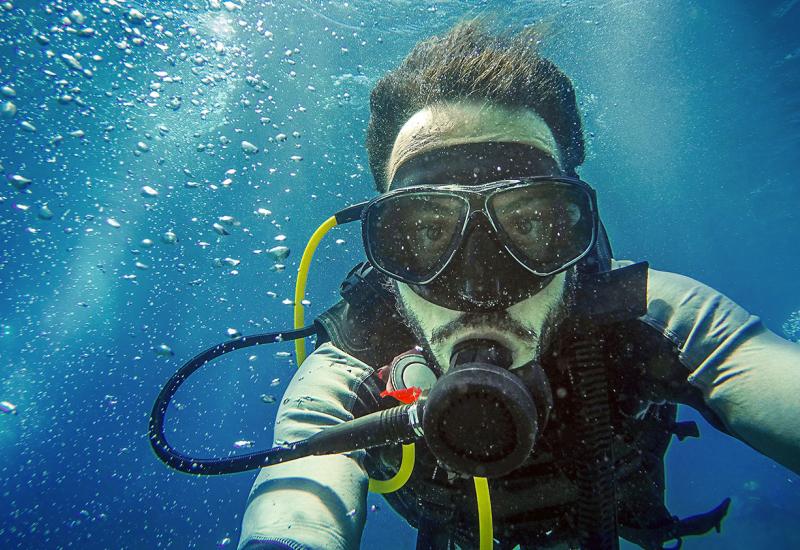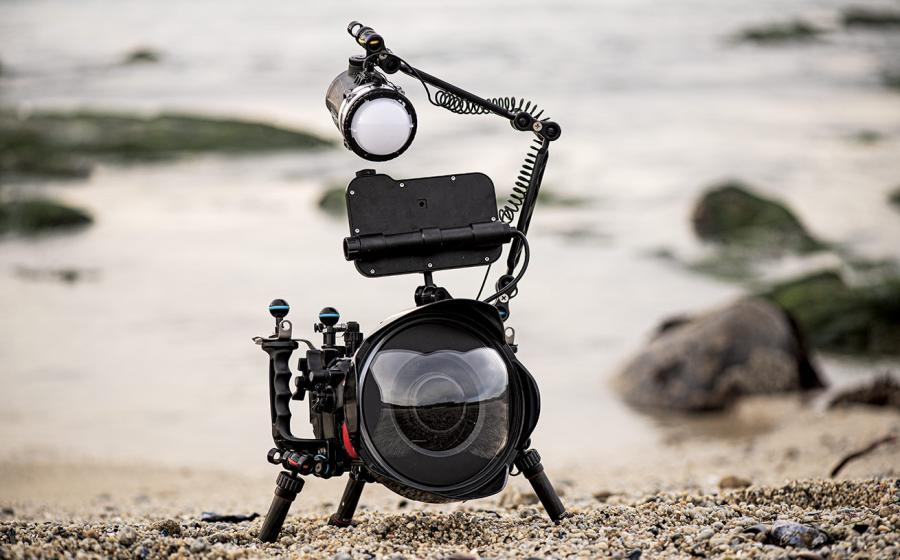Travel Tips: How to Avoid Common Scams
On the whole, dive travel — and travel in general — is exceedingly safe. The vast majority of the people you’ll encounter at your destination will be warm, friendly and honest. But some people target tourists who might not fully understand the language or local customs. Here are seven of the most common hustles you may encounter.

Thomas BurnsTravel tips for your next scuba vacation.
Pushy Street Vendors
Street markets can be great places to find souvenirs, local art, jewelry and more, but vendors can sometimes get pushy or use tactics that pressure you into making a purchase. Remember, you have no obligation to buy no matter how long you spend chatting with the seller. And don’t be afraid to haggle — street vendors often throw out a price far higher than what they’ll take. Make your best offer, and feel free to walk away if you can’t come to an agreement.
Unofficial or Unmetered Taxis
Unofficial taxis are a common fixture in many destinations, especially outside airports, bus stations and tourist hot spots. The safest approach is to find an official taxi counter where you can see established prices, and arrange a ride. However, if you do wind up hailing a cab yourself, always negotiate the price before you get in the car so there are no surprises later.
Cashier Change Confusion
There’s an exceedingly common scam in which cashiers prey on visitors’ unfamiliarity with local currency. The way it works is you hand over a banknote, say 100 pesos, then the cashier uses slight of hand or misdirection to claim you gave only 50 pesos by mistake, either shortchanging you or insisting you pay more, then pocketing the difference. The best way to avoid this is to be aware. Check your notes before you hand them over, and carry small bills to pay with exact change when possible.
Unsolicited Baggage Handlers
You’re getting off a ferry, onto a bus, or otherwise transporting yourself and your luggage, when someone arrives out of nowhere to heft your bags for you. Often these are entrepreneurial people who hang around bus stations, ferry docks and the like, moving people’s bags a few feet unsolicited, then insisting on a tip. There’s nothing wrong with slipping someone a couple bucks to load your bags if you’re so inclined, just keep hold of your things and give a firm “no thanks” if you’d prefer they not.
More travel tips for picking the perfect dive destination.
Strangers Offering Gifts
Most travelers venture abroad with an open mind and willingness to engage with the people and the cultures they encounter. However, sometimes that can be used against you. Be wary of friendly locals offering gifts out of nowhere, whether it’s a flower or a bracelet tied unwillingly to your wrist, an invitation for a cup of tea inside a shop. These can be ploys to make a sale, and refusing to buy after accepting “generosity” can quickly turn into a scene.
Beggars and Panhandlers
Beggars and panhandlers are unfortunately quite common all over the world, especially in places where there are large numbers of relatively well-off tourists. In some cases, they might be children or people in dire circumstances that pull at your heartstrings. But it’s rarely beneficial to simply hand out money, and at worst it could expose you to pickpocketing or outright robbery. If you’re moved to help these people, look for relevant organizations that do positive work in the area, and donate that way.
Late Night Calls from the “Front Desk”
Another common travel scam is a form of identity theft that happens over the phone — more specifically, the room phone in your hotel. It usually happens late at night when you’re sleepy and disoriented. The perpetrator will dial your room number claiming to be the front-desk clerk having a problem with your credit card. They’ll ask you to confirm the card details, and once they have it, they use it to run up charges until the account is closed. Always go to the front desk in person before giving out any financial information.










